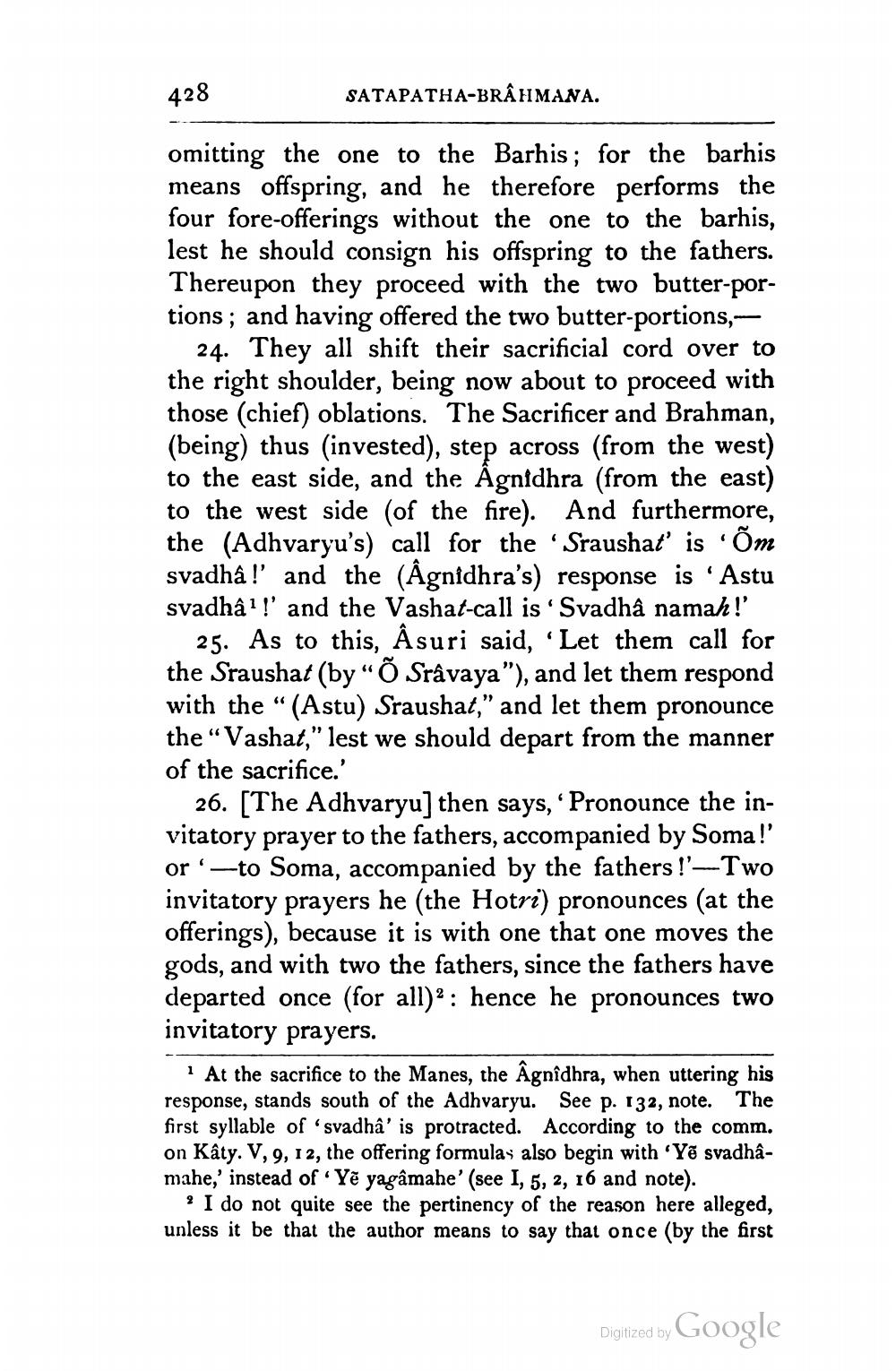________________
SATAPATHA-BRAHMANA.
omitting the one to the Barhis; for the barhis means offspring, and he therefore performs the four fore-offerings without the one to the barhis, lest he should consign his offspring to the fathers. Thereupon they proceed with the two butter-portions; and having offered the two butter-portions,
24. They all shift their sacrificial cord over to the right shoulder, being now about to proceed with those (chief) oblations. The Sacrificer and Brahman, (being) thus (invested), step across (from the west) to the east side, and the Âgnîdhra (from the east) to the west side (of the fire). And furthermore, the (Adhvaryu's) call for the 'Sraushat' is 'Õm svadhâ!' and the (Agnidhra's) response is 'Astu
svadhâ1!' and the Vashat-call is 'Svadhâ namah!'
25. As to this, Âsuri said, 'Let them call for the Sraushat (by "Õ Srâvaya"), and let them respond with the "(Astu) Sraushat," and let them pronounce the "Vashat," lest we should depart from the manner of the sacrifice.'
428
26. [The Adhvaryu] then says, 'Pronounce the invitatory prayer to the fathers, accompanied by Soma!' orto Soma, accompanied by the fathers!'-Two invitatory prayers he (the Hotri) pronounces (at the offerings), because it is with one that one moves the gods, and with two the fathers, since the fathers have departed once (for all): hence he pronounces two invitatory prayers.
1 At the sacrifice to the Manes, the Âgnîdhra, when uttering his response, stands south of the Adhvaryu. See p. 132, note. The first syllable of 'svadhâ' is protracted. According to the comm. on Kâty. V, 9, 12, the offering formulas also begin with 'Ye svadhâmahe,' instead of 'Ye yagâmahe' (see I, 5, 2, 16 and note).
? I do not quite see the pertinency of the reason here alleged, unless it be that the author means to say that once (by the first
Digitized by
Google




